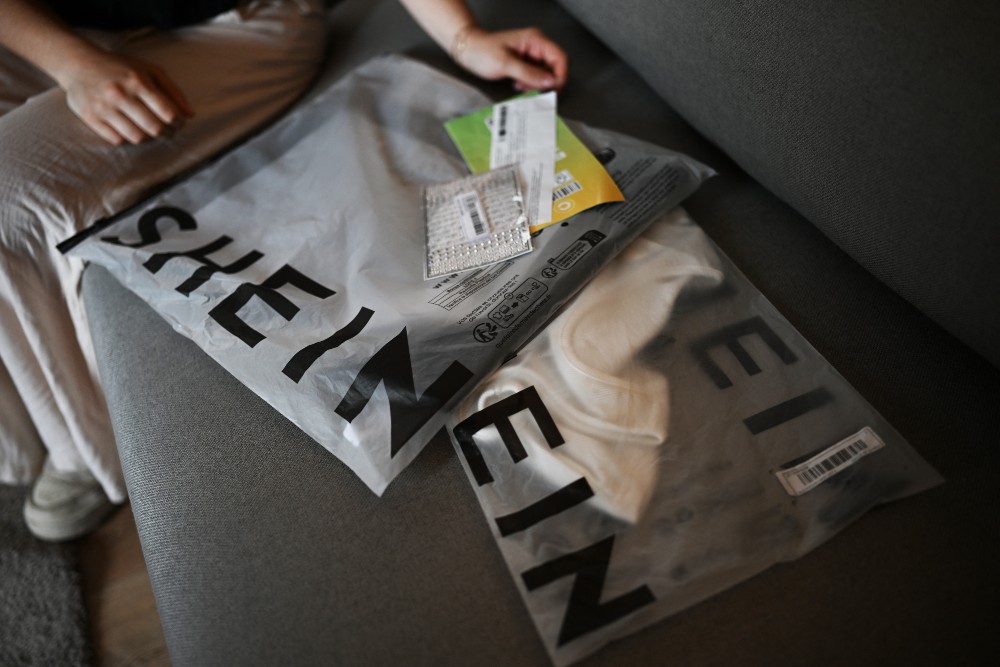Physical Address
304 North Cardinal St.
Dorchester Center, MA 02124
Physical Address
304 North Cardinal St.
Dorchester Center, MA 02124

Shein has recalled a set of children’s pajamas it sold in four different colors over flammability concerns, the Consumer Product Safety Commission (CPSC) announced Thursday.
Prior to the recall, the fast-fashion e-tailer had sold approximately 17,300 units of the product, which the CPSC said pose a risk of burn injuries to children.
The pajamas, manufactured in China, sold for about $20 a pair between August 2023 and November 2024. The company and the CPSC have directed consumers to “immediately take the recalled sleepwear away from children and stop using them.” The notice also states that consumers who purchased the pajamas should contact Shein directly for a refund. Shein has already started the process of contacting all known buyers of the sets.
The notice did not make any reference to destroying or discarding the items.
Though Shein does have a marketplace function, which enables sellers to hawk their own wares on the e-tailer’s site, it still produces and sells many of its own styles. This product appears to be one of those styles; according to the description, the brand on the product was “SHEIN EVRYDAY.” The description further notes that the name “Shein” had been printed on a label sewn into the garments.
The pajamas in question contained 97 percent polyester and 3 percent elastane. According to the CPSC, “the two-piece, short-sleeve pajama sets were sold in blue, pink, purple and orange, and have a pocket on the left side of the top of the pajama sets.” Shein sold the sets in sizes 8Y, 9Y, 10Y, 11Y and 12Y.

Recalled children’s pajamas in purple. Photo via CPSC.
Last month, the company recalled a hair dryer it sold for concerns over electrocution.
A spokesperson for Shein said the company will continue to comply with all applicable safety regulations.
“Shein takes product safety very seriously and is committed to offering safe and reliable products to our customers,” the spokesperson said in an emailed statement. “Our vendors are required to comply with the code of conduct we have put in place as well as the product safety laws and regulations in the countries we operate in.”
The spokesperson further noted that, upon receipt of a notice of non-compliance, Shein “immediately removed the product from the site as a matter of caution while conducting [its] investigations.”
“If non-compliance is verified, we will not hesitate to take appropriate follow-up action with the vendor of said product,” the spokesperson said.
In 2024, Shein carried out more than two million product safety tests by partnering with Intertek, SGS, Bureau Veritas and TÜV. According a company announcement, it plans to invest at least $15 million to “further strengthen its product safety testing and compliance protocols” in 2025.
Late last year, Peter Feldman and Douglas Dziak, two of the CPSC’s commissioners, called on the agency to investigate Shein and Temu in an effort to “determine how these foreign-owned firms that rely on overseas suppliers meet their obligations under the Consumer Product Safety Act.”
There has not yet been a public statement about the findings of any such investigation, but in their letter, Feldman and Dziak indicated that Shein and Temu’s use of the de minimis provision was of particular interest to them.
Earlier this month, when President Donald Trump suspended de minimis for products inbound from China as part of his sweeping tariff-focused agenda, both Feldman and Dziak put out statements supporting the move.
“I applaud President Trump’s bold action to revoke the de minimis privilege for all imports from China. The United States Consumer Product Safety Commission (CPSC), which is charged with protecting American families from unreasonable risk of injury from consumer products, has long been concerned about the enforcement challenges when Chinese firms, with little or no U.S. presence, distribute consumer products under the de minimis provision,” Feldman said at the time. “In addition to avoiding tariffs, shipments under this provision also skirt paperwork filings and safety assurances that CPSC relies on for targeting and screening. Thanks to President Trump’s leadership, Chinese shippers who import dangerous consumer products in violation of U.S. laws will no longer be able to hide behind the de minimis provision and put American families at risk.”
Since then, Trump has restored the de minimis exemption, noting that U.S. Customs and Border Protection (CBP) will first need to find an efficient, robust way to collect the tariffs coming from shipments previously covered by de minimis. The agency will also need to sort out an efficient way to process the high volume of packages.
Last year, Shein announced that it had become part of a pilot testing program, known as the Section 321 Data Pilot, which CBP has been using to collect data about de minimis entries before they hit U.S. soil. That data includes product photos, declared value, who will receive the parcel from the shipper and more. Amazon, eBay, DHL and FedEx also participate in the pilot.
That pilot is slated to end this year, unless CBP extends it further.